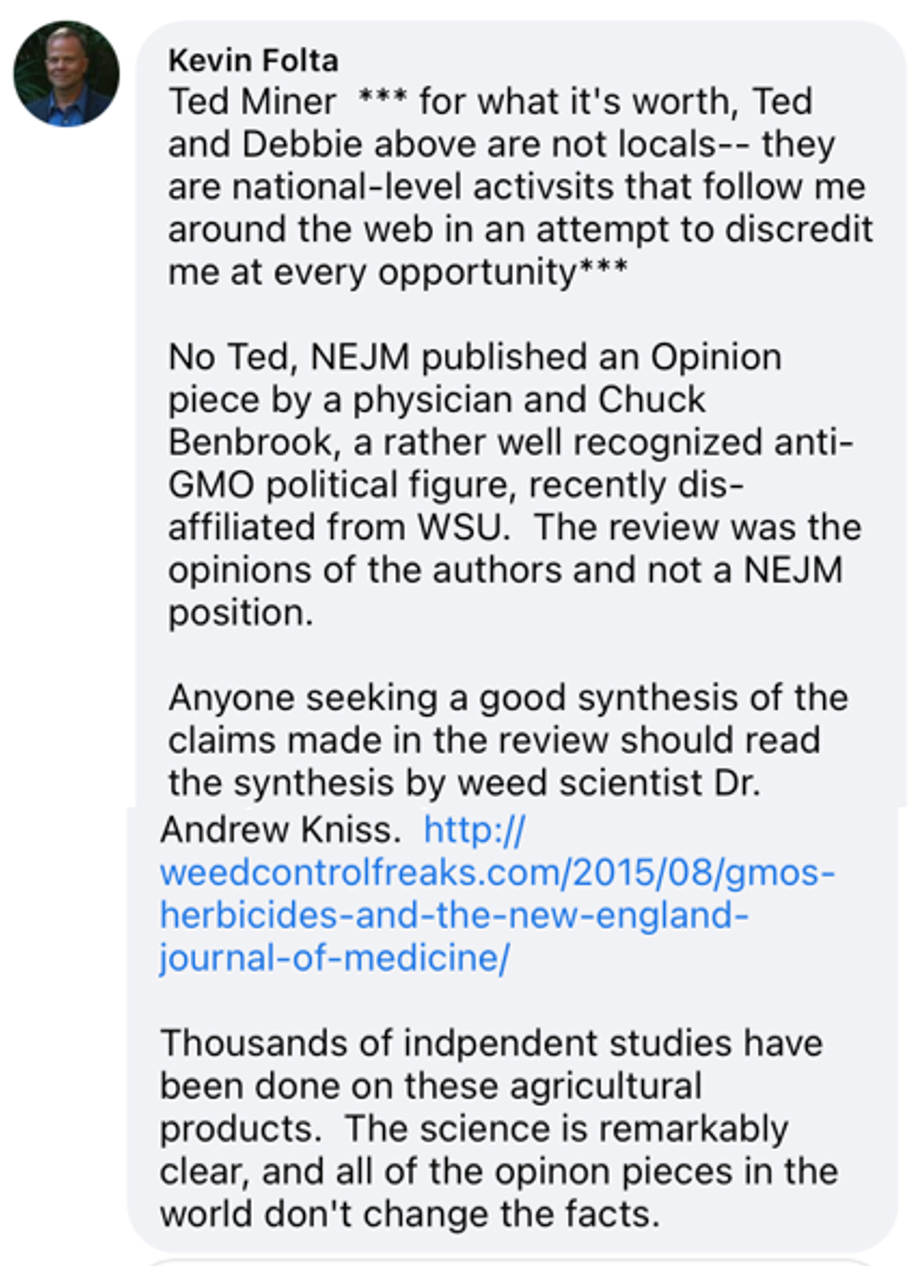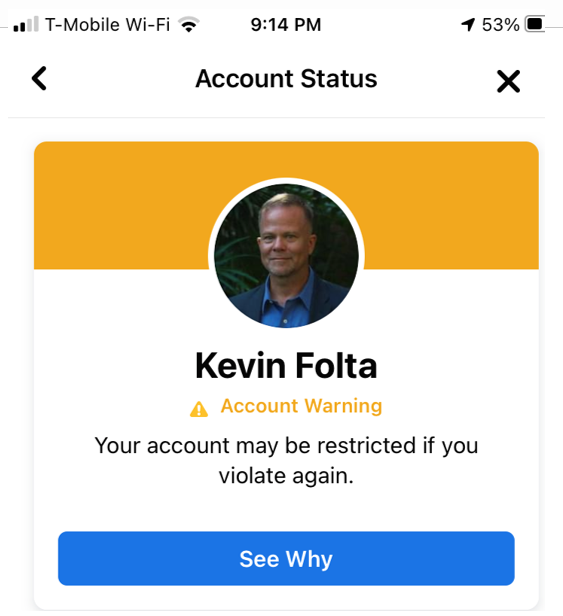Social media platforms shouldn't be trusted to censor scientific “misinformation.” As we've reported in recent months, such efforts by tech companies like Facebook are crippled by partisanship and double standards. The result is that some users (usually major media outlets) are allowed to botch the science with impunity, while others are silenced for committing the slightest of offenses, real or imagined. See my April story Follow The Science? How The Media's Hypocrisy Undermines Critical Thinking In The Age Of COVID for more on this.
Facebook safeguards the feelings of anti-GMO activists?
Right on cue, Facebook has offered up another example of why social media censorship fails. On June 19, the company flagged a 2015 post written by University of Florida geneticist Kevin Folta. [1] What was his offense? Folta took two anti-pesticide activists to task for making misleading statements about the weed killer glyphosate. They falsely claimed the herbicide causes cancer and alleged that the New England Journal of Medicine (NEJM) acknowledged the causal link between the two.
In reality, the journal published an opinion piece by two authors, one of whom was caught taking $100,000 from organic food companies to conduct “studies” that would make their products look good. That's very different than the NEJM taking an editorial stance on the health effects of glyphosate. For pointing out this obvious distinction, Folta was told his post violated Facebook's “community standards” and warned that his account may be suspended if he committed another offense.

There are two possibilities: Facebook is incapable of consistently settling science-based disputes, or the company uncritically accepts reports of abuse from activists who want Folta and other scientists de-platformed. Either is possible given the company's sloppy fact-checking history, but neither is excusable. Facebook's loosey-goosey community guidelines make this situation all the more ridiculous:
We want people to be able to talk openly about the issues that matter to them, even if some may disagree or find them objectionable. In some cases, we allow content for public awareness which would otherwise go against our Community Standards – if it is newsworthy and in the public interest. We do this only after weighing the public interest value against the risk of harm ...
Presumably, this would include academics trying to politely educate the public about controversial science issues, but then we read this:
Our commitment to expression is paramount, but we recognize the internet creates new and increased opportunities for abuse … We recognize that words mean different things or affect people differently depending on their local community, language, or background. We work hard to account for these nuances while also applying our policies consistently and fairly to people and their expression. Our enforcement of these standards relies on information available to us.
How's that for a loophole? The company says it may label content “abusive” if it's inauthentic or threatens its users' safety, privacy, or dignity. How Folta's correction crossed any of those lines is unclear to me. But then again, this whole exercise is inherently subjective; the censor defines the scope of censorship, and "risk of harm" is creepy, Orwellian language that could mean almost anything.
Who watches the watchers?
Science only works because researchers are free to present evidence that contradicts established dogma. This is the foundation of the whole enterprise. "Science is a mosaic of partial and conflicting visions," physicist Freeman Dyson wrote in The Scientist as Rebel. "But there is one common element in these visions. The common element is rebellion against the restrictions imposed by the locally prevailing culture." When the subject is the Catholic Church's treatment of Galileo, everybody in the academy seems to grasp the importance of open debate. [2] Though when they get to set the rules, many researchers are all too happy to help social media companies silence controversial voices.
The kicker, in this case, is that Folta's opinion was anything but contrary. Excluding people who get paid to assert that glyphosate causes cancer (trial lawyers, activists), nobody familiar with the weed killer thinks it's carcinogenic.
Before anyone unhelpfully points out that private companies aren't subject to the restrictions outlined in the Constitution, let me remind you why that's entirely irrelevant. Allowing powerful interests (say multi-billion-dollar corporations) to dictate the boundaries of public discourse comes with costs, one of which is that they may turn the ban hammer on you. The fact that you “follow the science” is clearly no check on a company that thinks itself qualified to judge your “authenticity.”

[1] Full disclosure: I co-host the Science Facts and Fallacies podcast with Folta.
[2] Parenthetically, this is a poorly understood event in the history of science. See this analysis by historian Thomas Woods.




